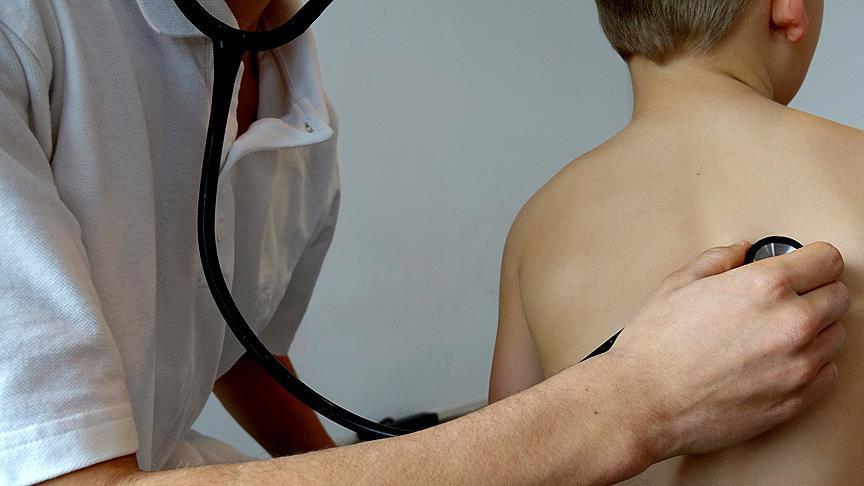
Pneumonia claimed the lives of more than 800,000 children under the age of five last year, or one child every 39 seconds, according to the UN's children agency.
"Every day, nearly 2,200 children under the age of five die from pneumonia, a curable and mostly preventable disease. Strong global commitment and increased investments are critical to the fight against this disease," said Henrietta Fore, executive director of UNICEF, in a report released on Nov. 11.
Pneumonia is caused by bacteria, viruses or fungi, and leaves children fighting for breath as their lungs fill with pus and fluid, according to UNICEF.
"Just five countries were responsible for more than half of child pneumonia deaths: Nigeria (162,000), India (127,000), Pakistan (58,000), the Democratic Republic of Congo (40,000) and Ethiopia (32,000)," the report said.
Most of the children's deaths took place under the age of two, while about 153,000 of the children died during their first month, it said.
"The disease can be prevented with vaccines, and easily treated with low-cost antibiotics if properly diagnosed," the report added.
Pneumonia in Turkey
"Lower respiratory tract infections, including pneumonia, are responsible for 13.5% of all deaths of children under five years old in Turkey," Hasan Bayram, head of the Turkish Thoracic Society, told Anadolu Agency.
Pneumonia is especially prevalent in children, seniors over 65 years old, smokers and people who suffer from diabetes and chronic kidney, heart or lung diseases, said Bayram.
Although immunization and widespread use of antibiotics have led to a fall in mortality related to infectious diseases, pneumonia is still costs time and resources across the globe.
The disease ranks fifth among leading causes of death in Turkey, accounting for 4.2% of all deaths, he noted.
Some types of pneumonia pose a risk of direct disease transmission to healthy people, according to Cenk Babayiğit, head of respiratory tract infections working group at the Turkish Thoracic Society.
"We advise flu vaccination to people who live with people with pneumonia or who are responsible for their care to avoid the risk of
transmission," Babayiğit added.
Influenza viruses could also lead to pneumonia, and may turn other viruses into pneumonia by damaging the respiratory tract, he added.
Babayiğit noted that chill, shivering, coughing and high fever were among pneumonia's symptoms, while the advanced form of the disease could manifest in bluish-purple skin and mucous, shortness of breath, hypotension and the clouding of consciousness.